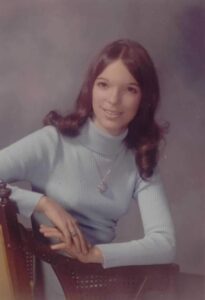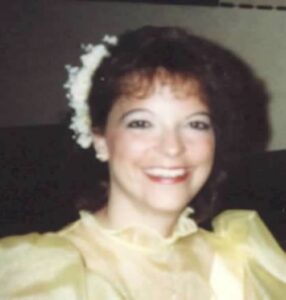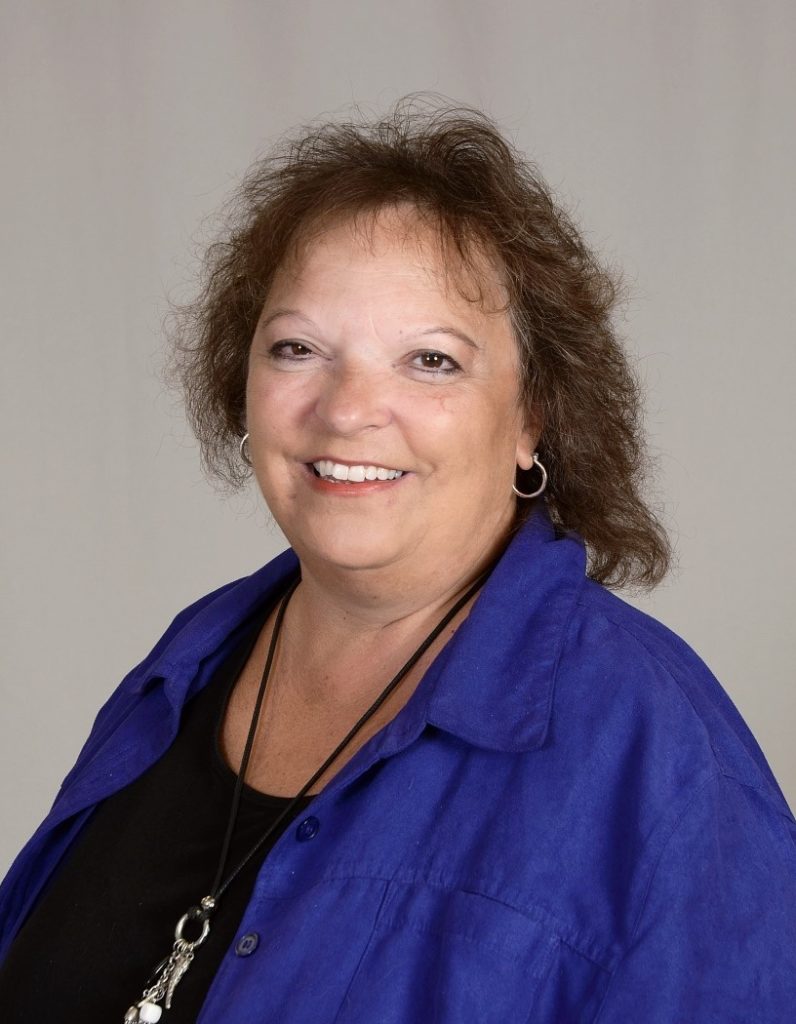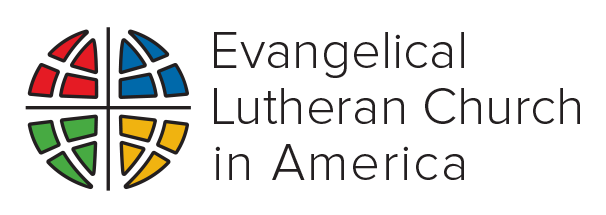Rita Sapp was twelve years old when she first accompanied a worship service.
“It was so scary! Those first years were tough because I had to practice so much to be ready,” Rita tells me over a Zoom call. “My piano teacher assigned two hymns each week along with the usual music (like Bach) to learn, so there was a lot of practicing.”
A few years ago, I asked Holy Trinity’s Worship Leader how long she had been accompanying worship services. Rita paused briefly to think about it, guessed it must be approaching 50 years, and we moved on. I made a mental note to somehow commemorate this milestone, but life proceeded to get in the way.
Then, during a recent staff meeting, Rita discussed her process for arranging, recording, and editing a song for the online worship service. I marveled at how different this process is from when she began (now 52.5 years later).
In the Beginning
 From the age of twelve, Rita played three services at St. Paul’s Lutheran Church in Le Center, Minnesota every week. “I played for the 8 am, 10 am, and 11:30 am service every week for $4 a service. I had to open a bank account!”
From the age of twelve, Rita played three services at St. Paul’s Lutheran Church in Le Center, Minnesota every week. “I played for the 8 am, 10 am, and 11:30 am service every week for $4 a service. I had to open a bank account!”Her teacher, Audrey Palmquist, sat next to her on the organ bench while Rita played the prelude and a hymn. “She was my idol,” Rita said. “I took off on my piano playing when I started lessons with her.” In addition to teaching private music lessons, Ms. Palmquist was the school choir director and the church organist. She is also credited with teaching Rita how to sing and play the piano simultaneously. “She made me sing along with the hymns so I would get the breaths in the right place.”
Growing up in a musical family, Rita always knew she wanted to be a musician. “Music was big on both sides of my family so we all took lessons, we all learned the organ. My grandmother was an organist, both of my sisters played it.” Rita began piano lessons in the second grade, but her music skills really improved a few years later when she learned to read music for the school band.
“I just played piano by ear. My older sister would play my songs for me. I’d listen to her and then just imitate the sound. Once I joined Band, I learned my notes, and I took off.”
Learning a musical instrument takes years of discipline, dedication, even sacrifice. This can be difficult on a young person whose friends are on sports teams or active in drama. “I used to sit [at the piano] and cry. I didn’t want to be practicing piano!” But her parents encouraged her to keep going, telling her she would appreciate it some day. “You’ve got to get over those humps. I’m thankful now!” she says laughing.
Half a Century of Changes
Fifty-two and a half years later, Rita has been a front row witness to the evolution of the modern worship service. “We’re  getting away from the hymnals and going toward contemporary [worship songs]. The music we use has more to do with reading chord symbols and less reading music. Thankfully, there are [internet] sites out there with the melody and chord symbols written out.”
getting away from the hymnals and going toward contemporary [worship songs]. The music we use has more to do with reading chord symbols and less reading music. Thankfully, there are [internet] sites out there with the melody and chord symbols written out.”
 getting away from the hymnals and going toward contemporary [worship songs]. The music we use has more to do with reading chord symbols and less reading music. Thankfully, there are [internet] sites out there with the melody and chord symbols written out.”
getting away from the hymnals and going toward contemporary [worship songs]. The music we use has more to do with reading chord symbols and less reading music. Thankfully, there are [internet] sites out there with the melody and chord symbols written out.”In addition, there are now fewer requests for the organ and a decline in church weddings. “I used to play a wedding almost every weekend. Now.. not as many. And even if an organ is at the church, [the couple] request a piano.”
An accomplished organist in high demand, Rita has played the challenging instrument all over the Cities, throughout Minnesota universities and has even played for a funeral at Fort Snelling. “Every organ is different,” she says. “So every situation is a nightmare. You don’t know what you’re getting into.”
The organ is a complicated instrument that requires not only the use of both hands, but both feet to play the notes. In addition, the organist is required to pull different “stops” to create different sounds with their hands while pushing pedals with their feet… when they’re not otherwise playing notes.
But the Greatest of These Is COVID-19
Leading worship during COVID-19 has led to the greatest changes so far.
“If I had known we were going to be in online worship this long, I would have purchased a decent program,” Rita laments. She uses Audacity to edit her recordings (and often mine). This doesn’t include Autotune (a feature on some programs that brings the recording to the correct pitch), so she will often record multiple times if a note is out of tune or a word is incorrect.
“At some point, you have to just let it go,” she says with her characteristic laugh.
From beginning to end, a typical song can take seven to eight hours to prepare. “I always research what’s out there on YouTube. Then I print music, arrange an accompaniment, record piano, record vocals, record harmony.. And then redo the vocals!” she laughs again. (Sometimes there’s a cat involved.)
Other pieces, much larger in scope, require more time to complete. “Be Thou My Vision” took about 20 hours,” she says. This project involved a virtual choir and required members of the HTLC choir to record and send in audio and video recordings to be included. This piece, along with many others, are available on the HTLC YouTube page.
Rita says the biggest challenge is finding music requested that does not have a written score as writing a part by ear can take many additional hours. “I usually just want to sit down and play the piece. That is the most frustrating part.”
The pandemic has brought out some positive aspects: involvement from new faces. “A lot of people in the church have contributed that we never would have heard from. That’s been great!” Several members not previously known to sing, play instruments, or read publicly have contributed videos of hymns and Bible readings.
Still Loves What She Does
 So how long will our Worship Leader continue to accompany services, online or in person? “I’ll do this as long as I can in my life,” Rita says. “I still love what I’m doing. It’s fun for me yet. So I’ll keep doing it.”
So how long will our Worship Leader continue to accompany services, online or in person? “I’ll do this as long as I can in my life,” Rita says. “I still love what I’m doing. It’s fun for me yet. So I’ll keep doing it.”Holy Trinity has been producing online worship services for almost a full year. Rita looks forward to the transition back to in-person services. “It’s going to be weird to have people in the room, singing with us! But I love what we have going at Holy Trinity!”
We are lucky to have you, Rita Sapp! Thank you for your 52.5 years of music, singing and, of course, the Rita Laugh!
Written by Rose M. Fife, HTLC Communications Specialist
February 11, 2021


